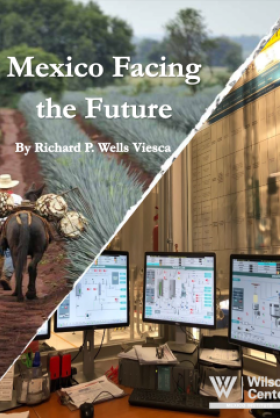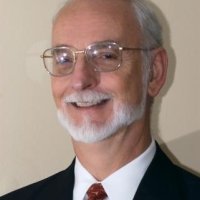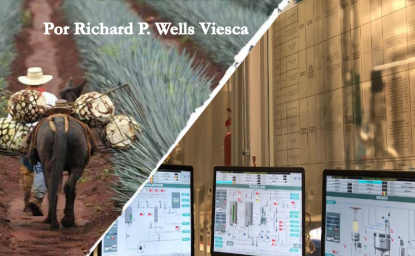Mexico Facing the Future


Mexico today faces an existential crisis that is unprecedented in its recent history. As with the four tectonic plates that underlie it geologically, four socio-economic tectonic plates that underlie Mexico economically and socially—its economic model, technology, society, and natural environment-- are shifting with consequences that are difficult to predict. However, technological change is upending traditional business models built on returns to scale, efficiency and product improvement in global value chains. Paradoxically, increasingly centralized global technology platforms facilitate innovation and local and regional new market creation by linking the local to the global. Technology is transforming the nature of commerce and of work. Products that Mexico produces are being supplanted by shared services. Routine manual and cognitive jobs, today the entry point to the middle class, are being displaced by automation, artificial intelligence and “gig economy” jobs.
As with tectonic plates that affect its geology, the socio-economic plates that underlie Mexico socially and economically will shift, clash and overlap. The future will be challenging for Mexico, as it will be for all societies. Solutions must emerge from a national conversation that engages all sectors of society and all regions. Mexico will need to focus on its particular vulnerabilities in education, competitiveness, innovation, economic inequality and environmental sustainability. Thus, this paper examines the opportunities and challenges facing Mexico in the coming decades.
This publication is available in Spanish.
Author


Mexico Institute
The Mexico Institute seeks to improve understanding, communication, and cooperation between Mexico and the United States by promoting original research, encouraging public discussion, and proposing policy options for enhancing the bilateral relationship. A binational Advisory Board, chaired by Luis Téllez and Earl Anthony Wayne, oversees the work of the Mexico Institute. Read more

Explore More
Browse Insights & Analysis
México enfrentando el futuro

360° View of How Southeast Asia Can Attract More FDI in Chips and AI

